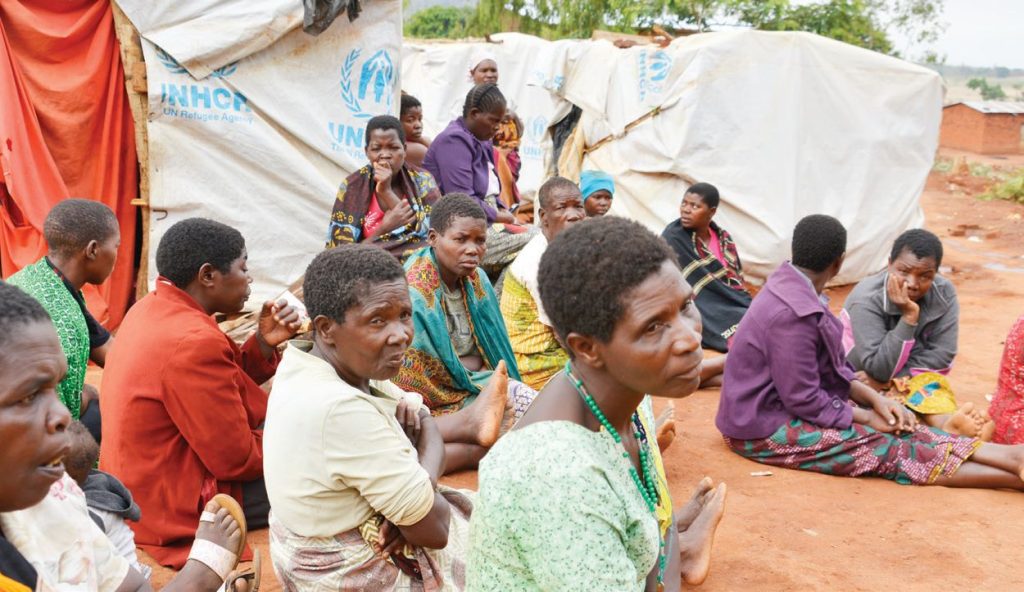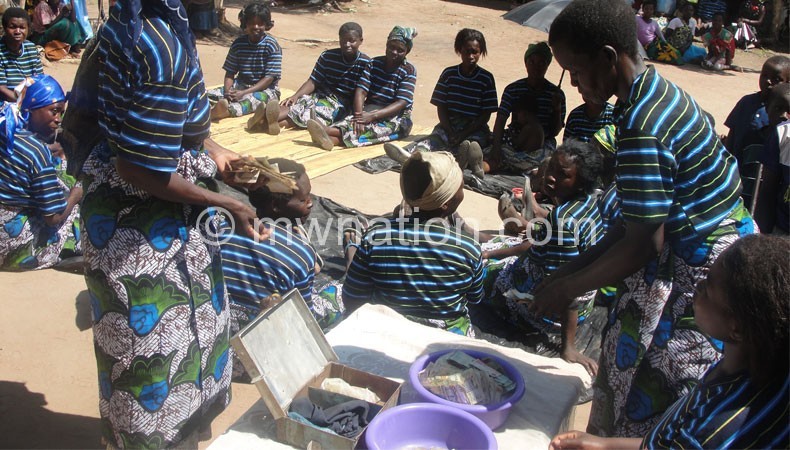‘Chonde tithandizeni, tifatu’
The rains are here with their pain. As if the nightmare of Cyclone Freddy was not enough, residents of the Nanchidwa Camp in Mulanje District last Tuesday faced yet another harrowing night.
Stormy rains and heavy winds wreaked havoc on their camp, tearing some tents from their stakes.

Nanchidwa Camp houses 96 families, a total of 278 people, in a location known for its vulnerability to flooding.
This is the same area that saw 105 precious lives being curtailed in the cyclone.
Tragically, the government has not yet relocated these survivors. Their ordeal began in March when mudslides, induced by Cyclone Freddy, displaced them, resulting in the loss of lives.
Agatha Chaoneka, a 52-year-old mother of five who also takes care of three orphans, lost her husband to the floods.
Heartbreakingly, her husband’s body remains missing eight months later.
On Tuesday, the heavens unleashed their fury with heavy winds, followed by relentless rain.
Chaoneka recounted the harrowing experience: “It started around 8 pm, and by 11 pm, it had intensified. I woke up my children, and we fled the tent as water flooded everything. Chonde tithandizire tifatu! (please help us or we will die.”
Another survivor Angela Chayima and mother of three, wasted no time when the rain began. Together with her husband, they left the camp, haunted by the memories of the March catastrophe.
The camp’s secretary Donex Chapata shared his perspective on the situation.
When they sensed the imminent danger, they urged camp residents to evacuate.
Some sought refuge at Nanchidwa Primary School, unwilling to relive the horror of the March floods.
He stressed: “We are not at peace. We’ve implored the government to move us to a safer place, but there has been no action to date.”
The land on which the survivors currently live belongs to a local family.
Initially, the survivors were granted a four-month extension until August to vacate the premises.
But a family member Makono Feluzi said the survivors have up to the first week of November to live on their land.
He stated: “It’s our farm, and we intend to resume farming. We’ve informed them that they need to relocate. Next week marks the final deadline. We’ve provided ample time for the government to find them alternative housing.”
In their desperation, the survivors have resorted to purchasing land to expedite the government’s house construction promise.
According to the camp chair Dick Austin, many have secured land at a location approved by council officials as safe.
He lamented: “It’s unfortunate that we are buying land when we should have received it for free, considering we lost everything.”
But district commissioner, David Gondwe, expressed surprise at learning that people were purchasing land that was supposed to be freely given.
He stated: “People are paying for land? That’s news to me. It’s not supposed to be that way. This should be a personal arrangement.”
Despite the confusion, Gondwe clarified that the district administration had secured land for relocation.
But both the camp chair and group village Ndala contradicted this, asserting that no free land had been distributed.
They said the survivors were using donations, specifically the K55 000 each family received from a certain organisation, to buy land.
Regarding the government’s efforts to relocate the affected population, Gondwe revealed that they were relying on organisations’ pledge to construct houses for them.
Habitat for Humanity Malawi emerged as one such organisation, set to construct houses for the affected residents in Mulanje.
Habitat construction coordinator Francis Sande disclosed that the project to build 25 houses at Nanchidwa Camp would start the following week, with the hope of constructing as many houses as possible by December.
The people of Nanchidwa and Khulubwe are calling for urgent help to escape the cycle of despair and find stable ground to rebuild their lives.
Their plea echoes through the rainy nights and flooded tents: “Chonde tithandizeni, tifatu!”





